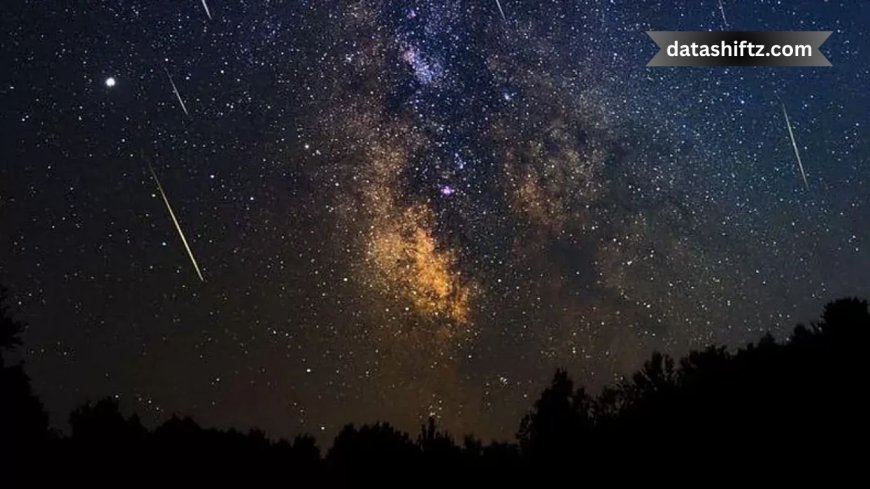Perseids Meteor Shower Tonight: A Celestial Spectacle You Can’t Miss

If you’re a stargazer or simply someone who appreciates the wonders of the night sky, tonight is a special occasion. The Perseids meteor shower, one of the most spectacular annual celestial events, is expected to reach its peak. Across the globe, skywatchers will have a chance to witness dozens of meteors streaking through the darkness, offering a dazzling natural light show. In this article, we will explore everything you need to know about the Perseids meteor shower tonight, including how to watch it, what causes it, and why it is so popular.
What is the Perseids Meteor Shower?
The Perseids meteor shower is an annual event caused by Earth passing through the debris left behind by the Swift-Tuttle comet. As these tiny fragments enter Earth’s atmosphere at high speeds, they burn up, creating bright streaks of light called meteors or "shooting stars."
-
Origin: Debris from Comet Swift-Tuttle
-
Active Period: Mid-July to late August
-
Peak Night: Typically August 11th-13th
This year, the Perseids will peak tonight, offering the best opportunity to see meteors. This shower is one of the most reliable and prolific meteor showers, with rates often exceeding 60 meteors per hour under ideal conditions.
Why the Perseids Are So Popular
The Perseids are a favorite among both amateur and professional astronomers for several reasons:
-
High Frequency: The shower produces a large number of meteors per hour.
-
Bright Meteors: Many Perseids are bright, often with persistent trails.
-
Warm Weather: The peak occurs during summer in the Northern Hemisphere, making it comfortable for nighttime viewing.
-
Historical Significance: The Perseids have been observed for over 2,000 years, making them one of the most well-documented meteor showers.
How and When to Watch the Perseids Meteor Shower Tonight
To get the best viewing experience tonight, here are some essential tips and information:
| Aspect | Details |
|---|---|
| Peak Time | Late night to early morning hours (between 11 PM and 4 AM local time) |
| Best Viewing Locations | Dark rural areas away from city lights |
| Moon Phase | This year’s moon phase will affect visibility (check local moon phase calendar) |
| Weather Conditions | Clear skies with minimal cloud cover are ideal |
| Viewing Tips | Lie flat on your back, use a reclining chair, allow eyes to adjust to darkness for 20 minutes |
Step-by-Step Guide to Viewing
-
Find a Dark Spot: Avoid urban areas with light pollution.
-
Give Your Eyes Time to Adjust: It takes about 20 minutes for eyes to become fully dark-adapted.
-
Look Toward the Northeast: The meteors appear to radiate from the constellation Perseus, located in the northeastern sky.
-
Be Patient: Meteors appear randomly; allow yourself at least an hour of watching.
-
Bring Essentials: Warm clothes, snacks, and perhaps a blanket for comfort.
What to Expect from Tonight’s Perseids Meteor Shower
Tonight’s Perseids meteor shower promises to be a memorable event. Depending on your location and weather conditions, you can expect to see:
-
Up to 60 or more meteors per hour during peak time.
-
Occasional fireballs — exceptionally bright meteors that leave glowing trails.
-
A wide spread of meteor directions, with most appearing to radiate from the constellation Perseus.
Frequently Asked Questions About the Perseids
| Question | Answer |
|---|---|
| What causes meteor showers? | Meteors occur when Earth passes through debris left by comets or asteroids. |
| Why is it called the Perseids? | Named because meteors appear to radiate from the constellation Perseus. |
| Can I see the shower with the naked eye? | Yes, no telescope or binoculars are necessary; a dark sky is sufficient. |
| Is there a best time during the night? | The hours after midnight generally provide the best viewing opportunities. |
| Do meteor showers happen every year? | Yes, meteor showers occur annually when Earth crosses debris streams in space. |
Final Thoughts
The Perseids meteor shower is more than just a beautiful sky show; it’s a reminder of our place in the cosmos and the dynamic universe we live in. Whether you’re an experienced astronomer or a casual observer, tonight’s event offers a perfect chance to connect with nature and witness a stunning natural phenomenon.
Make sure to set aside some time late tonight or early tomorrow morning to enjoy the show. Find a comfortable spot, look up, and watch as dozens of meteors streak across the sky, lighting up the night with their fleeting brilliance.





























